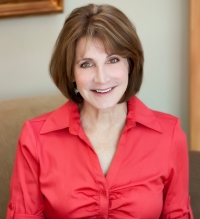What Does “Spiritual, Not Religious” Mean? It’s Complicated.

Years ago, I signed onto a dating site, where algorithms work hard to match compatible partners based on answers to questions concerning habits, preferences, professional and educational background and beliefs. To address the last category, the site offered a choice of Christian/Catholic, Christian/Protestant, Christian/Other, Jewish, Other, Agnostic, (“Atheist” was not added until recently) and of course, Spiritual, Not Religious.
I probably checked that last one because nothing else I saw captured the essence of my, well, spiritual side. I’ve since discovered those three words don’t do much for me either, but I’m swimming against the tide.
The phrase is everywhere these days, an increasingly popular descriptor and category into which the rising number of “nones” are placing themselves, according to The Pew Research’s 2012 “Religion and Public Life Project.” One-fifth of the adults sampled identified as “spiritual not religious” (one-third of those were under 30), up significantly from its 2008 three-part survey on beliefs in the United States. Not surprisingly, the phrase is up for interpretation even as a tug-of-war appears underway amongst various traditional religions, ancient belief systems, new-age lifestyles and humanists who are vying for the hearts, minds and, um, spirits of the unaffiliated.
What does self-identifying as a spiritual not religious individual say about that person’s beliefs or needs? Depends on who’s doing the identifying.
Last year, Ben Biber, humanist chaplain at American University, proposed humanism as a place for some of those who are “searching for connections, community, and senses of purpose.”
And two British comedians and humanists have been offering non-theist Sunday “services.” Some mainstream U.S. media outlets like CBS News have picked up the story of the atheist mega-churches that are taking our country by storm.
A media exaggeration, yes, but enough people are seeking the company of like-minded people with whom they can share positive, communal experiences to make these large group activities viable. Apart from the atheist non-church, humanist chaplaincies like the one at Harvard University have appeared to address the spiritual needs of their non-theistic constituencies.
Traditional religions aren’t about to concede the “spiritual not religious” moniker to the secular community, however. The megachurch services I’ve attended are impressive events, part rock concert and part giant barbecue, less bowing of heads and more clapping of hands, more spirituality than religiosity. In this view, either religion or spirituality will get you to God. A recent article in the Mormon newsletter Deseret News supported this view, featuring the results of a study that illustrated the spiritual is rarely if ever truly separated from the religious.
So “spiritual not religious” is open to interpretation, a conclusion supported by the highly unscientific (but highly illuminating) online poll I conducted among my Facebook friends, about 30 of whom participated. An eclectic, outspoken lot, they had quite a bit to say about what that expression meant. One respondent sharply observed, “‘Spiritual’ is a denial of atheism and ‘not religious’ denies a structure. It’s a defensive measure regarding the assumed judgment of others.”
That may sound harsh but it rings a bit true. Calling oneself spiritual, as another plainspoken friend noted, provides cover in Christian America. The word leaves open the possibility that you are acknowledging the existence of a greater something. Even if you don’t call it divine, we know what you mean. At least you’re not a heathen or, heaven forbid, godless.
While some of the replies rejected the category, most took a more benign view. For a few, it was a way of finding God; for others, a way to discover they didn’t need a god. Some looked inward, some looked out. Many mentioned an appreciation of the natural world, others emphasized an involvement in the community. All of them viewed theirs as a solo journey, personal and unique—as do I.
I have yet to decide what it all means: the rush of emotions when I hold a newborn baby, or find myself in the company of friends, when I watch the moon rise or the sun set, when I contemplate my existence or think of nothing at all. Somehow “spiritual not religious” doesn’t capture the essence of my non-material existence—my relationship with what I can and can’t see or know. In fact, I’ve yet to run across a word or phrase that does. Henceforth, I’ll respond to any and all questions about my beliefs with another thoroughly contemporary and ubiquitous response: It’s complicated.
